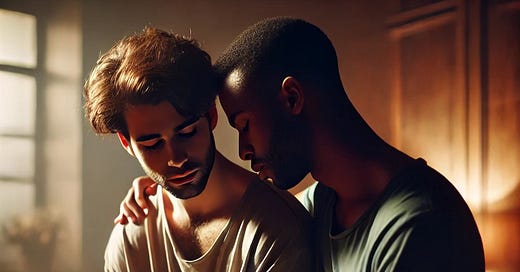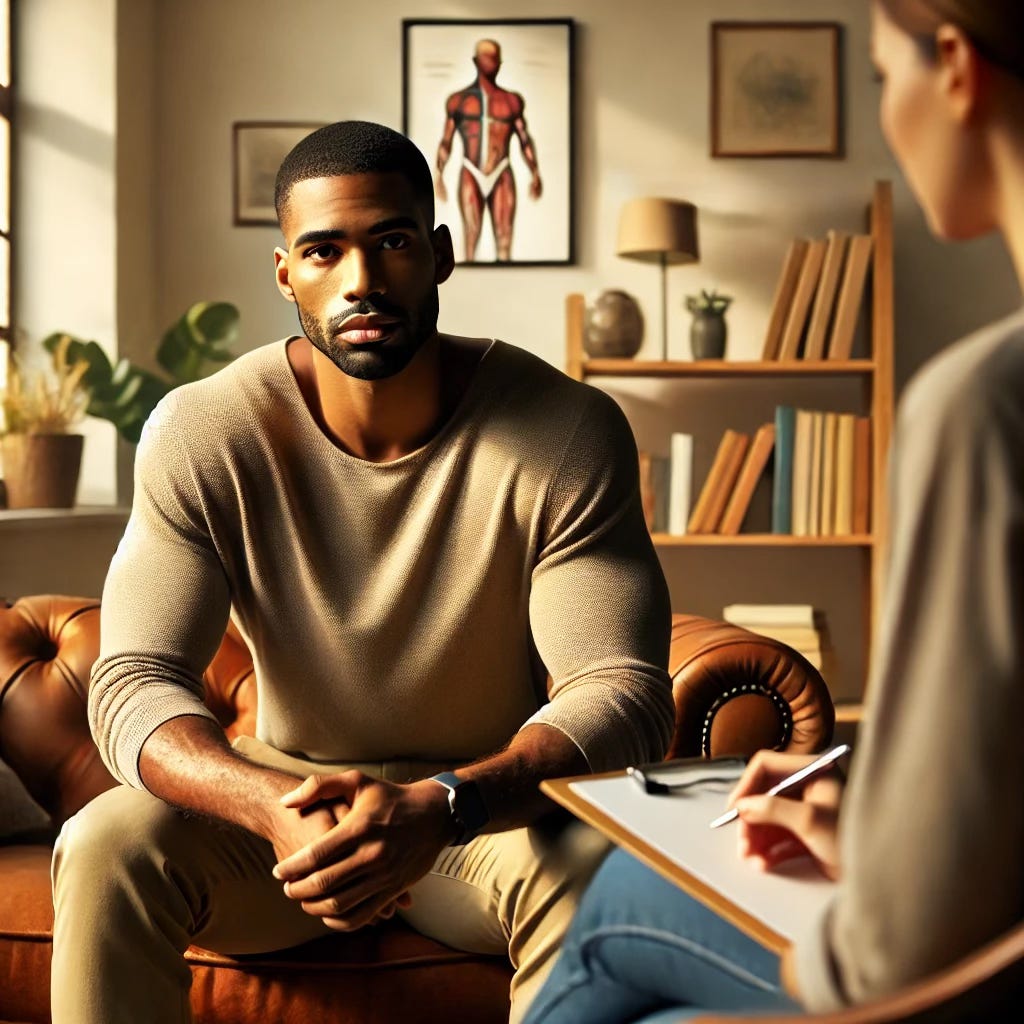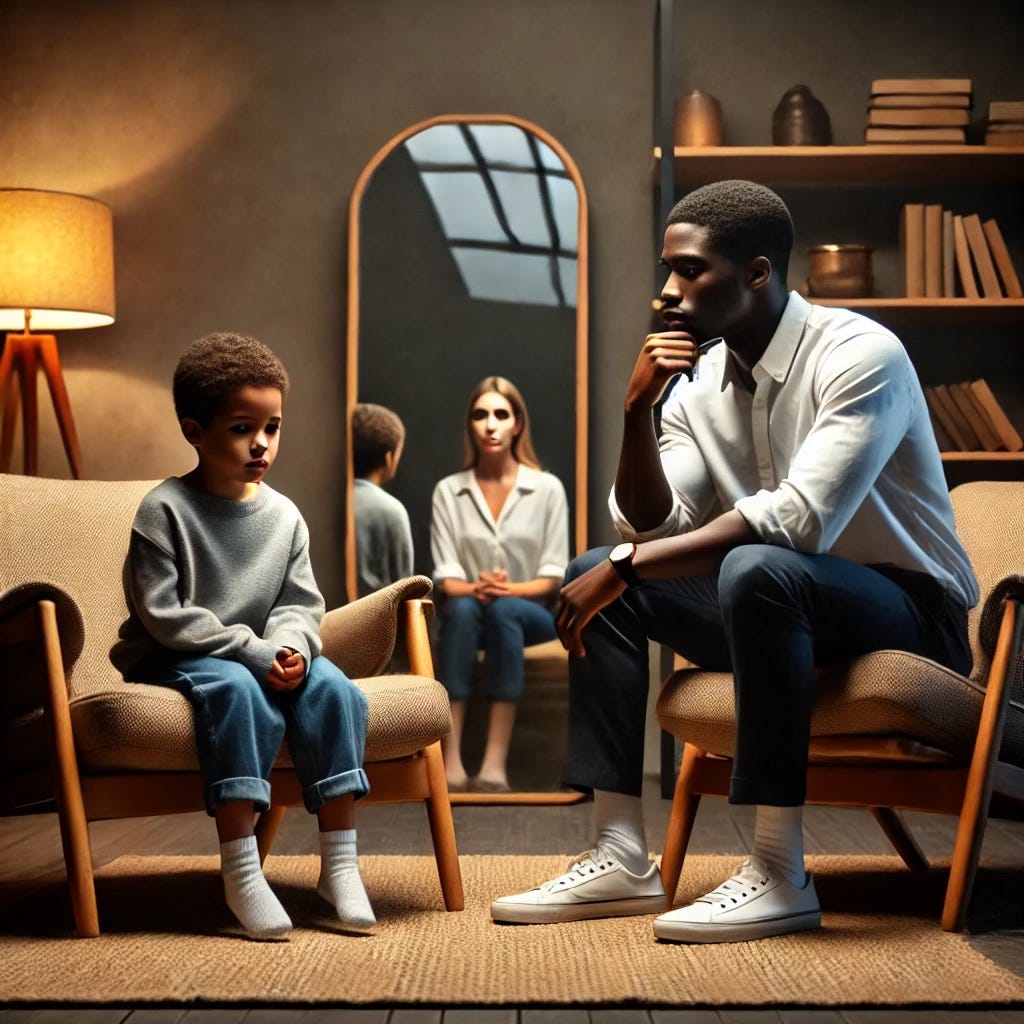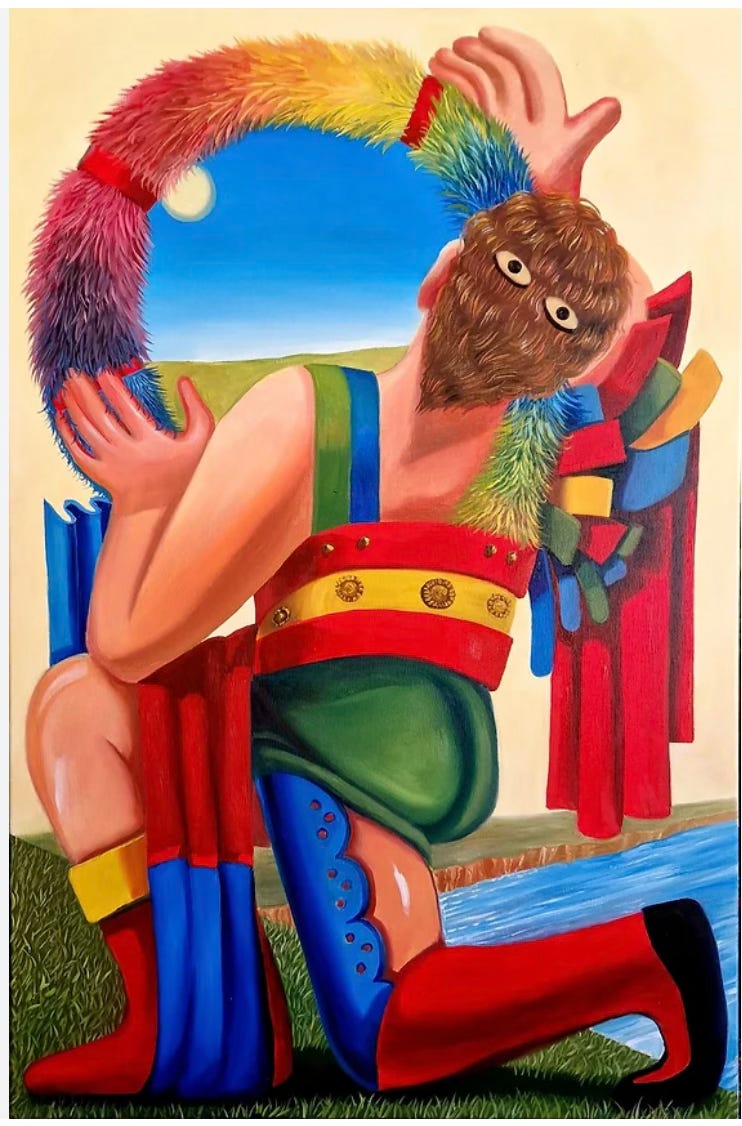My friend Johnny called me in tears.
A 22-year-old Black former football player, now on his way to a Ph.D. in Clinical Psychology (with a focus on gay-affirmative studies for people of color), Johnny couldn’t explain what had just happened.
He had been seeing a handsome, sexy man about ten years older for the last year, once-a-week, with whom he had some of his life's most intense, connected love-making. Their “one-night stands” evolved into something more—ordering food, watching TV, lingering in each other’s company. Johnny, feeling like something real was forming, finally voiced it:
"I love how we’re getting closer. Maybe we could officially date?"
His once-loyal sex friend barely hesitated before responding, "I’m not interested in anything serious with you."
This, despite the eye-gazing, the tongue-kissing, the deep sensual orgasms, the murmured "I love yous." The silence was so thick you could hear Johnny’s Uber Eats fries crunching. And then, as if nothing had happened, the man grabbed his things and, before heading out, casually tossed over his shoulder: "Hit me up sometime.
The Deeper Issue Isn’t Just This Breakup
What unsettled me wasn’t just another tale of gay romance dissolving into indifference.
We already know—from decades of gay-affirmative psychology—that gay men often carry unresolved attachment wounds from childhood. Freudian analyst Richard Isay talked about how warm, even incestuous longings for the father get met with rejection, and how this rejection can manifest in an inability to sustain enduring love in some men who have not repaired this wound. One symptom of this trauma? The classic gay dynamic of "pursuer" and "avoidant."
But what really got me was how Donovan’s therapist responded.
She told him to "take some time to heal" and that she would help him "grieve his loss." And sure, that’s fine. But where was the actual process? Where was the invitation to work with the experience, to understand what had just been activated in his psyche?
The worst thing we can do as therapists is treat a broken heart as if it’s the price of doing business instead of the first leg of the journey towards individuation.
Donovan had just gazed into the Burning Bush, and the bush spoke back.
The question isn’t just how to get over this—it’s how to understand what’s being revealed.
The Inner Citizenry: The Three Figures That Shape Our Emotional Democracy
In moments of heartbreak, we are not alone. Inside us, there are multiple competing voices—inner figures who shape our emotional experience. This is what I call Psychology for the People—a way of seeing our inner world as a democracy, a system of governance, where different "inner citizens" fight for control.
When love fails, we often meet at least three of these figures:
1. The Damaged Child (The One Who Longed for Love and Safety)
This is the part of us that believed in the connection.
The one who thought, This time, it will be different. This time, I won’t be left behind.
This part doesn’t just feel sadness—it feels devastation, betrayal, and disbelief.
How to Work With Him:
Close your eyes and visualize the Damaged Child. How old is he? What is he feeling?
He may be sourced in the same-sex oedipal dynamic discussed gay-affirmative Freudians (more on this tomorrow).
Ask him: "What did you want out of this relationship?"
Let him answer, even if it’s raw, irrational, or painful. Write it down.
He’s never had an Enlightened Witness. He’s never had anyone to hold him in his pain, for even the “Adult” personality walks through life like an amnesiac.
We have to listen to him—but not let him govern alone. Because if we do, heartbreak becomes despair, and despair becomes paralysis
2. The Inner Erotic Beloved (The One Who Was There Before the Heartbreak)
There was a part of you before the rejection. A part of you that existed before the “rejecting Gregory” archetypeentered the scene.
This is the part that is whole, before the wound.
The artist, the visionary, the lover who creates meaning and beauty.
This is the part that knew love before it was muddied by projection.
How to Work With Him:
Picture the Ideal Erotic-Romantic Lover. You have seen him many times. Just turn on Instagram or Twitter. He’s dancing or looking sexy, perhaps elusive.
Ask him: "What wisdom do you have for me?" “Why are you so distant.” He may respond with important answers. He may ask you why YOU are so distant. He may be yearning for you from the depth of your unconscious, but you could only encounter him through Loved Lost.
Let him remind you: You are more than your pain. You are my savior. I cannot live if you do not acknowledge me.
When we engage the Inner Beloved, heartbreak transforms into power. Be patient though. This “technique,” which is based in alchemy, and helps us RECOLLECT our PROJECTIONS takes a while to “master.”
3. The Inner Homophobic Parent (The One Who Shames You for Feeling Too Much)
This is the voice inside that shames us for being needy. This is the one who says that an embodied relationship with the Inner Romantic Stud is dumb and stupid and a recipe for loneliness. The one that tells us:
"You’re pathetic for wanting love."
"You should have known better."
"You’re embarrassing yourself."
This is the inner dictator. The authoritarian figure in our psychological democracy. This person only speaks in Black & White terms.
And here’s the hard truth: He (or she) is the real enemy.
Because it’s his voice that keeps us from healing. It’s his voice that tells us to "man up" and move on before we’ve done the deeper work.
How to Work With Him:
Identify his voice. What does he sound like? Does he remind you of a parent, a teacher, a past authority figure?
Call him out. "You are not my truth. You are a relic of a world that does not serve me."
Strip him of his power. He does not get to govern your inner world. This “Superego” needs therapy and is probably a hurt child him or herself.
When we dethrone the Inner Homophobic Parent, we restore democracy to our psyche.
The Political Crisis of the Soul
This isn’t just personal—it’s political.
We are in an era where reality itself is being rewritten. Down with identity politics, up with manifest destiny. Up is down, down is up. And the best resistance to all of this? The soul.
Because if the soul is lost, it can be found. The soul is made up of the inner complexes or subpersonalities we have just identified. This is what is called “soul-making.”
And if it’s not lost? It’s the one place even AI can’t touch.
It’s private, bro—keep your hands off.
This is why Psychology for the People matters. It’s not just about healing—it’s about building an inner democracywhere each voice is heard, but none become dictators.
Because the freedom of the soul is the foundation for all other freedoms.
For Paid Subscribers: My Grindr Slides on “How to Deal with a Broken Heart”
If this resonates with you, I’ve put together a set of slides on navigating heartbreak in the age of Grindr, with practical steps for engaging your psyche instead of just swiping through the pain.
Paid subscribers also get early access to my new book, Healing Gay Sex and Love: One Group Learns How to Heal Itself.
Join me for Part Two. We’re just getting started.








